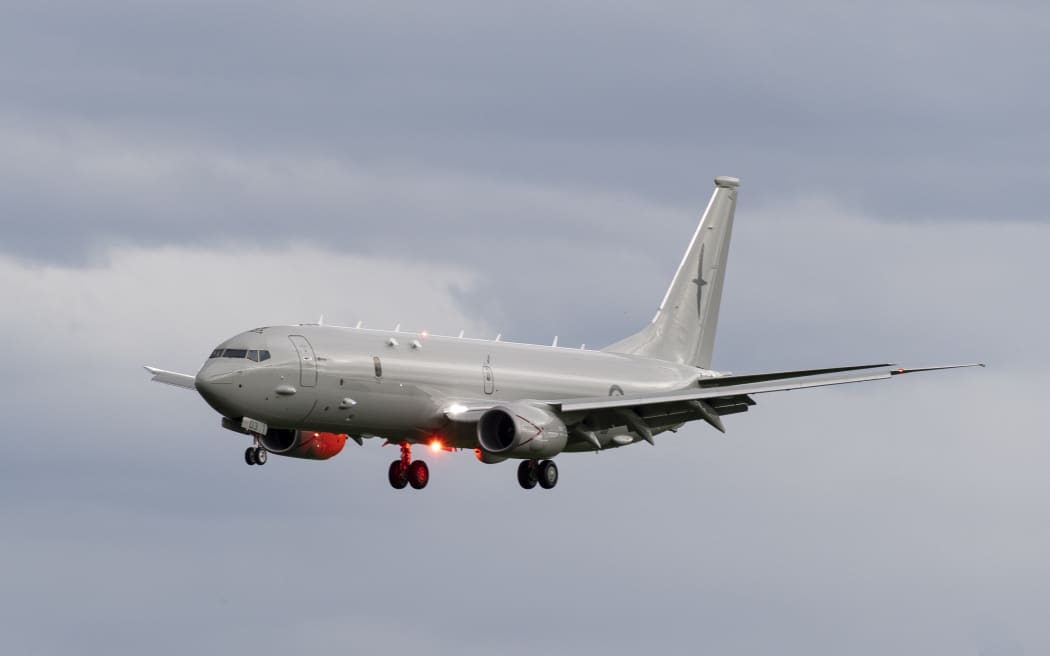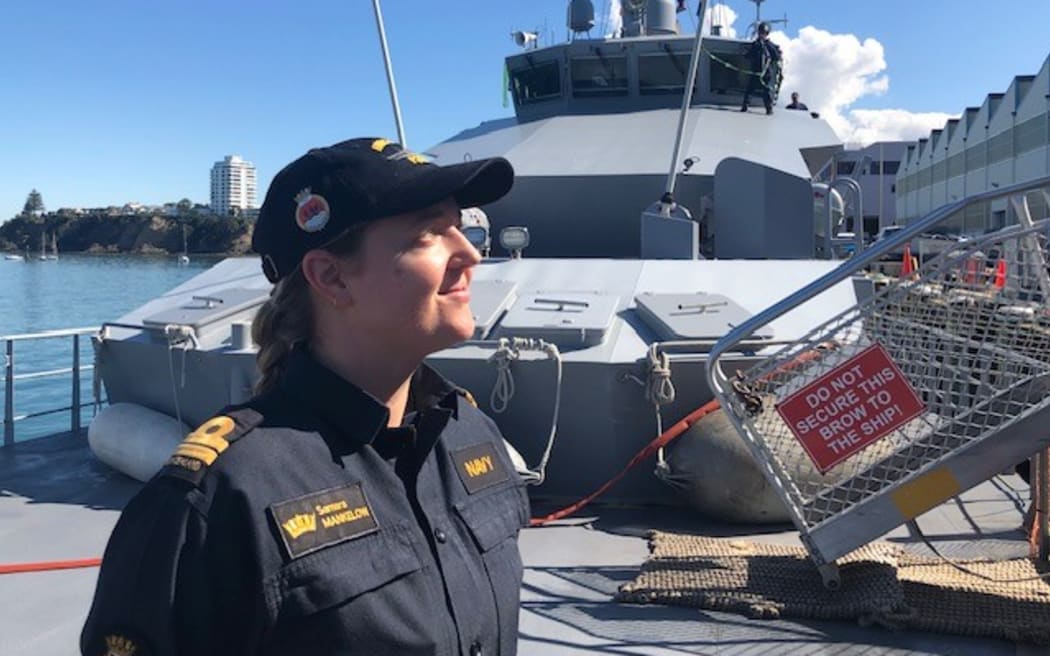Boats have just 30 seconds warning before the Air Force's new Poseidon is above them using its state-of-the-art cameras to collect any evidence of illegal fishing. With our naval patrol craft, they're part of a massive effort in the Pacific that's paying off.

The third P8 in the new fleet arrives at RNZAF Ohakea. Photo: CPL Rachel Pugh / Supplied
"Diplomacy, geo-politics and fish."
RNZ Pacific editor Koroi Hawkins sums up the Forum Fisheries Agency, the organisation tasked with keeping a close eye on a fishing fleet spread across a vast area of the Pacific Ocean.
And New Zealand's fisheries officials and Defence Force play a big part in helping with this massive job – documenting illegal, unreported and unregulated fishing, or IUU.
On The Detail today we're looking at the hands-on reality of the job, going on board the HMNZS Taupo – recently returned from a mission around Samoa's exclusive economic zone – and talking to the Air Force's 5 Squadron, just back from patrolling 18.2 million square kilometres of open seas.
"There's a lot that goes into a humble can of tuna," says Hawkins.
The FFA's dedication to the task, and the co-operation it has enlisted from 17 member nations, has seen instances of fish piracy fall from a time of catching completely under-the-radar wooden Vietnamese fishing boats, to pulling up vessels for not strictly adhering to their licensing terms and other technicalities.
"For illegal fishing they've really stepped up the fines and the risk and reward is not that great any more.
"We used to see when they did these big operations there would be four or five boats illegally fishing, and now each year we're seeing less and less reported, and more minor infringements reported."
"The positive story is that of all the oceans in the world, because of this regional institution, the FFA, this commitment to managing fisheries, (the fishery) is among the healthiest in the world. The Pacific countries are actually leading in terms of saying, 'hey, this is all of our fish ... and if we don't look after it, we're not going to have anything left'."
As well as the tuna fishery in the region there's a side benefit of providing security and surveillance for issues like drug trafficking and the use of slave labour on boats – and the same resources are called upon for search and rescue operations.
From its headquarters in Honiara the FFA collects data on everyone operating in the region, from their licence details, the type of gear they use, areas they're restricted from and even the time of day they're allowed to throw out their nets.
That's fed out to our Poseidon crews and patrol vessels as they capture the reality of what's happening at sea.
The NZDF isn't involved in prosecutions, just gathering information that may lead to them.
Squadron Leader Stephen Graham, who's the executive officer for the P-8A Poseidon squadron, based at Ohakea, says in terms of flagrant breaking of the rules, it's just not as prevalent as it used to be – "which is fantastic".
On The Detail today he gives us a rundown of how the Poseidon crews are tasked for their patrols, and Flight Lieutenant Stuart Glendinning tells us what it's like flying over 18.2 square kilometres of ocean in search of something that shouldn't be there.

Lt Samara Mankelow, commander of HMNZS Taupo. Photo: Alexia Russell / The Detail
His crew has just returned from Operation Island Chief, a huge multi-national surveillance operation north-west of Fiji, for the Pacific's Forum Fisheries Agency.
"We managed to conduct (data) collection on 68 different fishing vessels across the six days of flying that we did," he says. "That's quite a high rate – particularly given that a lot of the area we covered was actually empty - that can sound bad but one of the largest things we can do is be a presence in the area and act as a deterrent to illegal fishing."
The presence of a grey warship pulling along side you is also a big deterrent, says the Navy's Lieutenant Samara Mankelow.
She commands the HMNZS Taupo, an inshore patrol vessel which is usually tasked around New Zealand waters – but it's just come back from Samoa after taking part in an FFA operation, in collaboration with Samoan Fisheries and the Ministry of Primary Industries.
"It's important because the Pacific is our back yard, and New Zealand is such a large maritime nation and they're on our doorstep essentially.
"There's so much water up there ... so it's important we're all working together as partners to make sure that we're looking after not just the future of fisheries, but that we're enforcing stability across the whole region."
Find out more by listening to the full episode.
Check out how to listen to and follow The Detail here.
You can also stay up-to-date by liking us on Facebook or following us on Twitter.

Photo:


